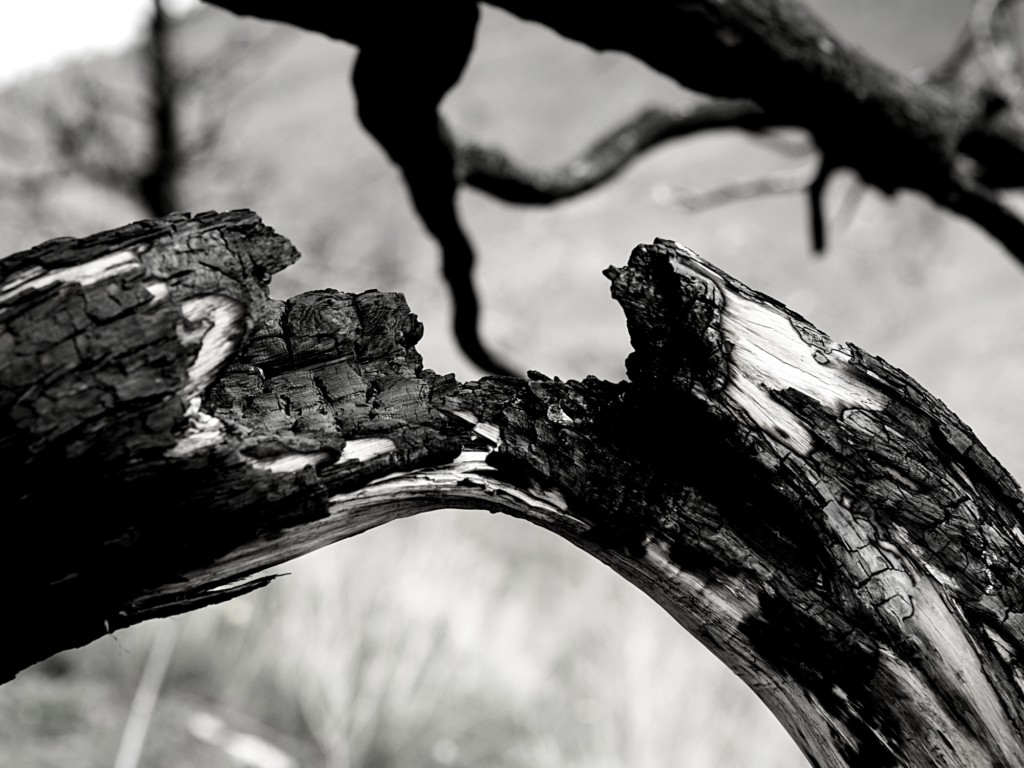Mary Sharon Moore
Excerpts from the forthcoming book, Nature Notes
© Mary Sharon Moore, 2022

The wildfires that have ravaged my beloved McKenzie River Corridor sparked into being a month ago. The evening of Labor Day, to be exact.
Sparked, I say, apparently because of downed electrical wires, the unsurprising outcome of a ferocious hyperdry windstorm from the east.
A hundred seventy-three thousand acres in the lower McKenzie River watershed have succumbed to the relentless force of the Fire Beast. A fire that’s been all fang, all fury.
“That would be Brother Fire,” the gentle Francis of Assisi reminds me.
Brother Fire, like a wily and ravenous wolf, has devoured most everything in its path. A wildly intense blaze, erupting at the height of an extremely hot, tinder-dry late summer spell, and driven west, down valley, by those ferocious eerie winds.
With a heart heavy with the massive forms of loss, I am relieved that Brother Fire did not touch my hiking trails east and uphill in the corridor.
A “total stand-replacing fire,” they call it, which means that the fire consumed pretty much all the timber standing in the path of the fast-moving inferno.
A month later, at less than eighty percent contained, the fire still burns, and likely will send up smoke columns into the coming winter.
I do not mean to speak so harshly toward Brother Fire, which is part of this one beautiful, resilient Earth.
It’s just that the peace I feel when I hike the woods, alongside the cold, swift-running McKenzie, leads me to forget the other untamed forces of Nature which could as easily kill me as replenish me.
Burned to ash are the soft soils of the forest floor—rich layers of deciduous leaves and conifer needles, whose fragrance instantly cleanses the soul, duff soils rich in microorganisms, that absorb autumn rains and mid spring snowmelt and protect the hard earth beneath from liquifying. That protective layer is gone; the scorched terrain, sterilized.
With the rainy season coming soon, we’re told to expect landslides in these western foothills of Oregon’s Cascades. Stabilization crews are scrambling to hold back soon-to-be saturated heavy soils from breaking loose and taking with them everything—whole trees, limbs, roots, boulders, buildings, foundations. Forest animals.
Whatever debris that flows downslope to the river will affect my drinking water. Ash, soil, tree debris, asbestos, mercury, lead, fire retardant, all of it, come the autumn rains.
Yet amid the devastation, our beloved chinook salmon have been seen heading upstream to their spawning grounds.
Life! Amid the devastation life continues, the urge toward new beginnings and next generations.
And yes, landslides could bury all those hard-won salmon eggs, tucked into nooks and crannies along the riverbank.
Life is precious, I am thinking, perhaps because it is so precarious. Everything hangs in the balance—as it always does, even when I seem to forget.
Winter will tell whether this river valley becomes a log-jammed floodplain.
This too would be a work of Nature. Creation is dynamic, alive. And it carries me in the flow of its force.
It carries you.
